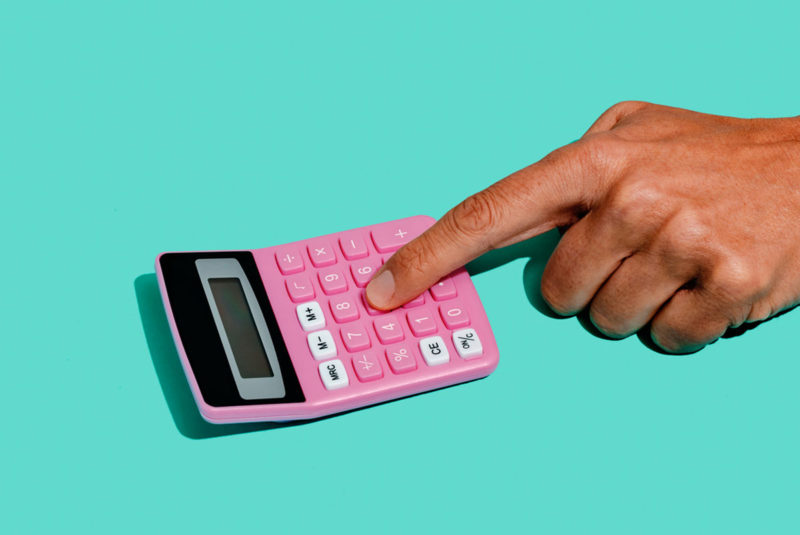Working to improve your credit is a wise use of your time. But when you’re trying to boost your credit scores because you want to qualify for something specific, like a credit card or a car loan, the process can feel like it drags on forever.
How soon will the actions you’re taking change your credit scores? The answer to that question is a little complicated.
First, credit scores don’t technically change. Confused? Don’t worry, we’ll explain more below.
Here’s the good news. If you take the right credit improvement steps, you could potentially see higher credit scores the next time your credit reports update.
How Quickly Can You Earn a Higher Credit Score?
Let’s talk about what most people really want to know when they ask the question, “How often do credit scores update?”
You’ve been working hard to improve your credit scores. How long will it take for your credit improvement efforts to pay off?
There are many variables that can affect the answer to that question. To keep the answer as simple as possible, it’s often possible to earn a higher credit score in 30 days or less.
It’s important to understand that the accounts on your credit reports don’t update in real time. The credit card balances on your credit reports, for example, won’t move up or down as you make charges or pay your bill. Instead, your credit card company will update the credit bureaus once a month with your new account details, as they appear on your statement.
A credit score improvement example
Here’s a scenario that might make the credit scoring process easier to understand. Imagine the following.
Jenny applies for a mortgage to buy a home, but her middle FICO® Score is 40 points too low to qualify. Determined to overcome this roadblock, Jenny reviews her three credit reports (always a wise move before applying for a loan or credit card). She researches ways she can try to improve her credit scores.
Jenny learns that paying down credit card balances to lower her revolving utilization ratio might help her scores. So, she pays off two credit cards and reduces the balance on a third account to less than 30% of its credit limit.
Excited to see results, Jenny uses a credit monitoring service to check her credit scores. Although the VantageScore® credit scores she checks don’t match the FICO® Scores her mortgage lender uses, it’s still a good way to see if her scores are moving up or down.
When Jenny checks her credit, she’s surprised to see her credit card balances didn’t update right away. Since her credit card companies haven’t updated her balances with the credit bureaus and nothing else on her reports has changed, her credit scores are still the same.
Jenny continues to check her credit scores. Over the next 30 days, all three credit card companies update her account details with the credit bureaus. With each update, her credit scores improve slightly. After the final update, her VantageScore® credit scores are 50 points higher than they were at the beginning of her journey.
She goes back to the loan officer and he recalculates her three FICO® Scores, based on her current credit reports. Her middle score is 43 points higher than it was a little over a month ago. Jenny now qualifies for a mortgage.
Credit Reports Change, Scores Are Recalculated
Credit reports and credit scores play an important role in your financial life. But while similar, these two products serve different purposes.
Credit reports show your credit history. They feature information about your current and closed credit accounts such as credit cards, mortgages, auto loans, personal loans, student loans, credit inquiries, and more.
Credit scores, like those created by FICO® and VantageScore®, are not part of your credit reports from Equifax®, TransUnion®, and Experian™. Instead, a credit score is an add-on product that lenders can purchase to evaluate your credit history and assess your creditworthiness.
Because credit reports and credit scores are separate products, it’s possible to get a copy of your credit reports without your scores attached. For example, you can visit AnnualCreditReport.com once every 12 months to get a free credit report from each of the major credit bureaus. Free credit scores, however, aren’t part of the package. The Fair Credit Reporting Act only gives you the right to access free annual reports.
Credit reports change often for a variety of reasons
First, the accounts on your credit reports are constantly growing older. There are many other reasons a credit reporting agency might update your credit report as well, such as:
- A creditor sends in an update regarding your account information (payment history, current balance, etc.).
- A credit card issuer sends in an updated account balance (and other details) after each new billing cycle
- You apply for a new account (resulting in a new hard credit inquiry).
- A creditor opens a new account for you.
- A debt collector reports a collection account in your name.
- You file bankruptcy or your bankruptcy status changes.
As the details on your credit reports change, it can absolutely impact your credit scores. However, the credit scoring process might not work in the way you thought.
Credit scores do not automatically update when your credit history changes
Your credit scores are not constantly in flux behind the scenes. They are only generated when someone requests them — like yourself or a lender.
A credit score is an evaluation of your credit risk at a specific point in time.
A credit risk score tells a lender how likely you are to pay a bill 90+ days late within the next 24 months. That risk evaluation is based on the information that appears on your credit report at the moment your score is calculated.
If the information on your credit report has changed, you’ll probably see a different number the next time you purchase a credit score (or access a free credit score online). But that doesn’t mean your credit score “changed,” per se. Rather, a new score is calculated (upon request) based on your current level of risk.
You may also find it interesting to learn that your scores aren’t stored anywhere on your credit reports. You can consider each credit score a still frame — generated once, then forgotten.
How soon can you access a new credit score?
Many people use free online services to track their credit scores. Credit Karma and Capital One’s CreditWise are two examples of websites that offer free credit scores to consumers.
If you use a free credit monitoring service, you may wonder how soon you can access a new credit score online. The answer depends on where you are tracking your credit scores. Some websites, like Credit Karma, will allow you to get an updated credit score each day. Other services may only offer you a new credit score once a month.
Paid credit monitoring services may allow you to access scores for all three of your credit reports at once. However, there are typically still limitations on how often you can view a recalculated version of your score. Often, a credit score update is limited to once per month through these services.
3 Ways To Improve Your Credit in 30 Days
There are no guarantees when it comes to credit score improvement. Yet if you take certain credit-smart actions, like the ones below, there’s a chance your credit scores may be in better shape the next time your credit reports update.
Pay down your credit card balances
Paying down credit card balances is an actionable way to potentially raise credit scores. FICO® bases 30% of your score on factors pertaining to the amount of money you owe to creditors on your credit report. Your credit card utilization rate (aka your balance-to-credit limit relationship) has a big influence over this credit score category.
When you lower your credit card balances, your scores are likely to benefit. But you’ll have to wait until the next time your card issuer updates your account with the credit bureaus to find out if your strategy worked. At the worst, paying down credit card debt can save money in interest fees. So, it’s a low-risk move, even if you don’t see the improvement you hope for when you recalculate your credit scores.
Increase your credit limit
Asking for a credit limit increase on a credit card is another way to possibly boost your credit scores. The more room you have between your credit card balance and your account limit, the lower your credit utilization ratio will fall. That’s good from a credit scoring perspective.
Even if a card issuer approves your request for a credit limit increase, you won’t earn a higher credit score automatically. You’ll have to wait for the card issuer to update your account information with the new credit limit. Then you can request a new credit score to see if there’s been any improvement.
Consolidate your credit card debt
Debt consolidation is another way to lower your credit card utilization when you can’t afford to pay off your balances. Two of the approaches you can take here include:
- Balance transfer credit cards
- Personal loans
In either scenario, you open a new account and use it to pay off existing credit card balances. Once the debt moves from your old credit cards to your new account and your credit reports update, your revolving utilization rate will likely fall. (In the case of personal loans, utilization could go all the way to 0% if you use the funds from your new installment account to pay off all of your revolving credit cards.)
Other ideas
There are other steps you can take to possibly earn higher credit scores too.
- Dispute errors on your credit reports: Incorrect information on a credit report can potentially harm your credit scores. If you dispute an inaccurate derogatory account and one of the major credit bureaus deletes the item from your report, it might make a difference when your score is recalculated. However, credit bureaus can take up to 45 days to investigate a credit dispute. There’s also no guarantee a credit dispute will end in your favor.
- Become an authorized user: When a loved one adds you onto an existing credit card account as an authorized user, it might help you earn better credit scores. But first, the credit card company will have to add the account to your credit reports. (Many card issuers report authorized user accounts to the major credit bureaus. But some do not.) Also, you only want to become an authorized user on a credit card with no late payments, because those may be visible on your reports. A low credit utilization ratio is also important. If a loved one adds you onto an account with late payments or high credit utilization, your credit scores might go down when you recalculate them.
The Takeaway
The information on your credit reports is constantly changing. So it’s not uncommon to see fluctuations each time you review your credit scores, even if you use the same credit scoring model to recalculate them. In fact, you could check your credit scores in the morning and the evening of the same day and you might not get the same results.
As always, your best bet is to focus on the source of your scores — the details of your credit reports themselves. When you follow good credit habits, like paying on time and keeping your credit card utilization low, your credit scores should benefit.
Good credit scores can help you tap into a lot of perks, like lower interest rates, better credit cards, and better approval odds when you apply for financing. So, even if you have to wait to see the results of your credit improvement attempts, it’s worth it.
The Short Version
- Your credit scores are based on the current contents of your credit reports, so they can change or update fairly often
- It’s not uncommon to see fluctuations each time you review your credit scores even if you use the same credit scoring model to recalculate them
- If you take the right credit improvement steps, you could potentially see higher credit scores the next time your credit reports update




